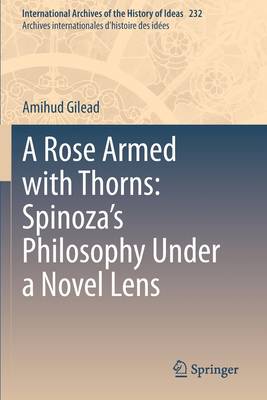
- Afhalen na 1 uur in een winkel met voorraad
- Gratis thuislevering in België vanaf € 30
- Ruim aanbod met 7 miljoen producten
- Afhalen na 1 uur in een winkel met voorraad
- Gratis thuislevering in België vanaf € 30
- Ruim aanbod met 7 miljoen producten
A Rose Armed with Thorns: Spinoza's Philosophy Under a Novel Lens
Amihud GileadOmschrijving
This book presents a systemic analysis of Spinoza's philosophy and challenges the traditional views. It deals with Spinoza's concepts of substance, truth conditions, attributes, and the first, second, and supreme grades of knowledge. Based upon an analysis of the relevant details in all of Spinoza's philosophical works, the book reveals many important points, including the following: Spinoza's system is not, nor is meant to be, a foundational-deductive system but was meant to be a coherent system of a network model. Spinoza's reality is not made in the image of a mathematical model. Imaginatio, the first grade of knowledge, and ratio, the second grade, are parts or properties of the supreme grade of knowledge, scientia intuitiva, which is their essence. Finite beings, especially humans, are necessary and eternal (unless they are mistakenly perceived by imaginatio) whereas time, place, and death are simply "entities of imagination." The salvation, happiness, and blessedness that Spinoza's Ethics offers us, are active and depend only upon us. Concluding a careful examination and interpretation, the book suggests additional novel viewpoints in interpreting Spinoza's philosophical psychology and political philosophy.
Specificaties
Betrokkenen
- Auteur(s):
- Uitgeverij:
Inhoud
- Aantal bladzijden:
- 320
- Taal:
- Engels
- Reeks:
- Reeksnummer:
- nr. 232
Eigenschappen
- Productcode (EAN):
- 9783030548124
- Verschijningsdatum:
- 12/08/2021
- Uitvoering:
- Paperback
- Formaat:
- Trade paperback (VS)
- Afmetingen:
- 156 mm x 234 mm
- Gewicht:
- 485 g

Alleen bij Standaard Boekhandel
Beoordelingen
We publiceren alleen reviews die voldoen aan de voorwaarden voor reviews. Bekijk onze voorwaarden voor reviews.











